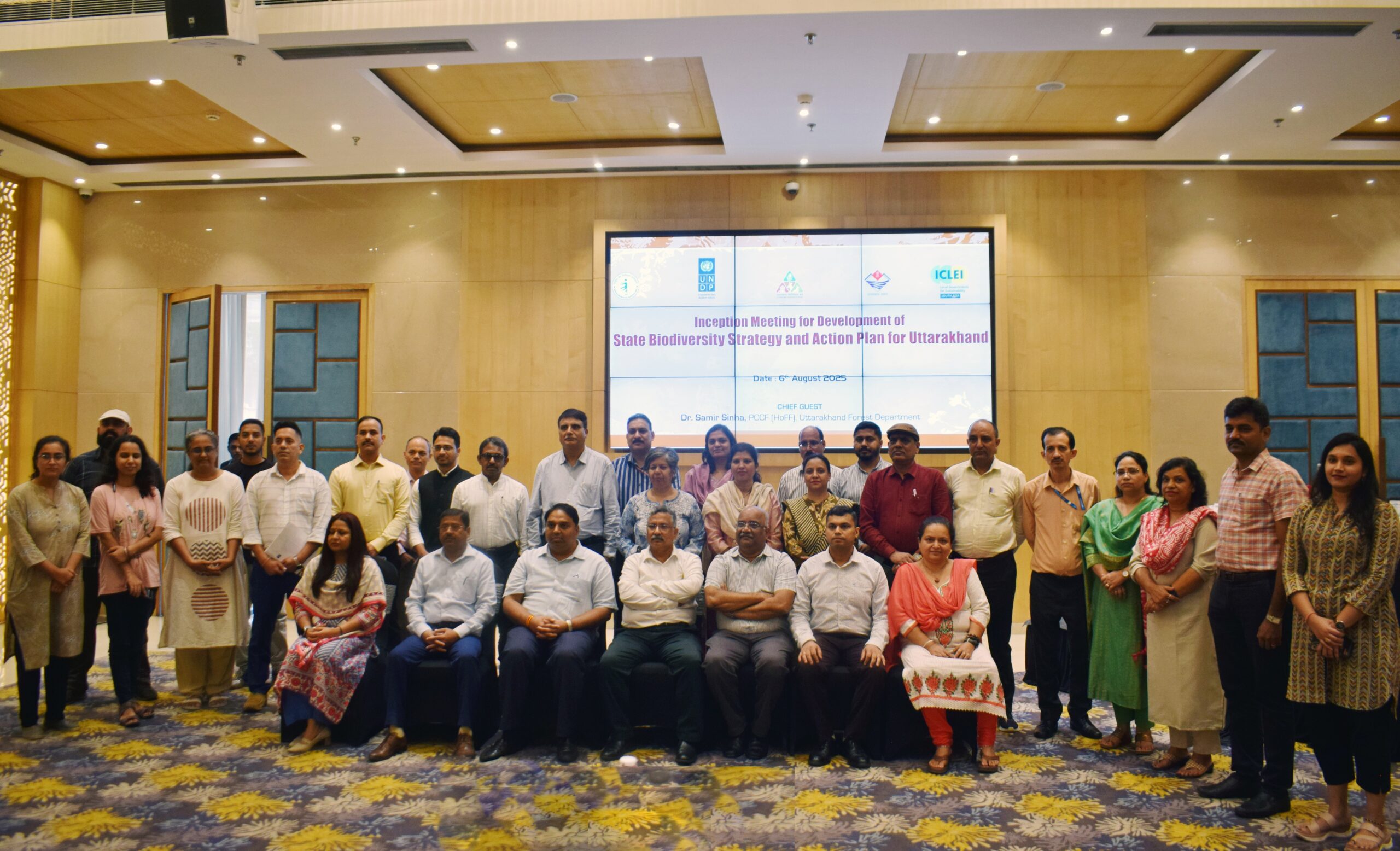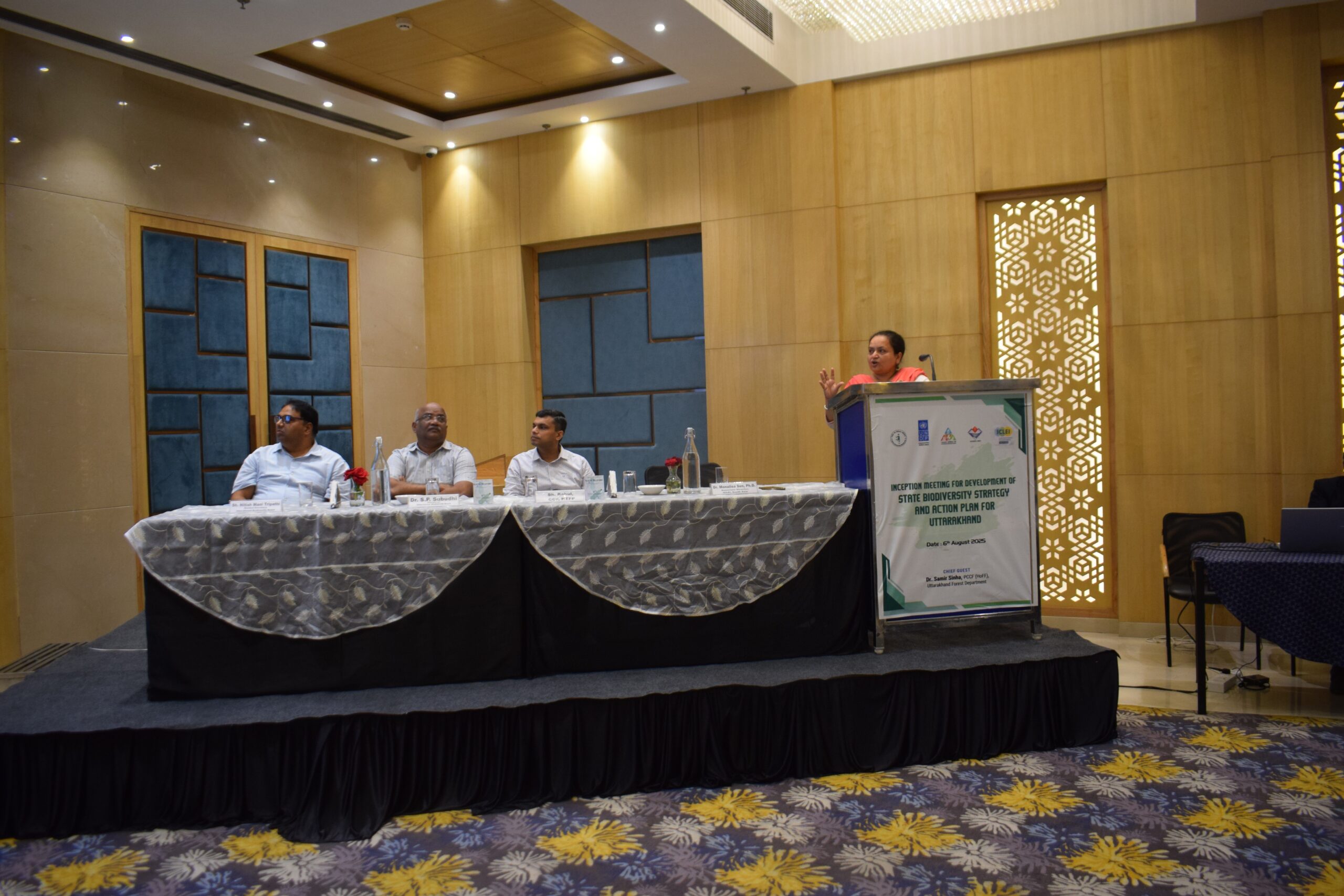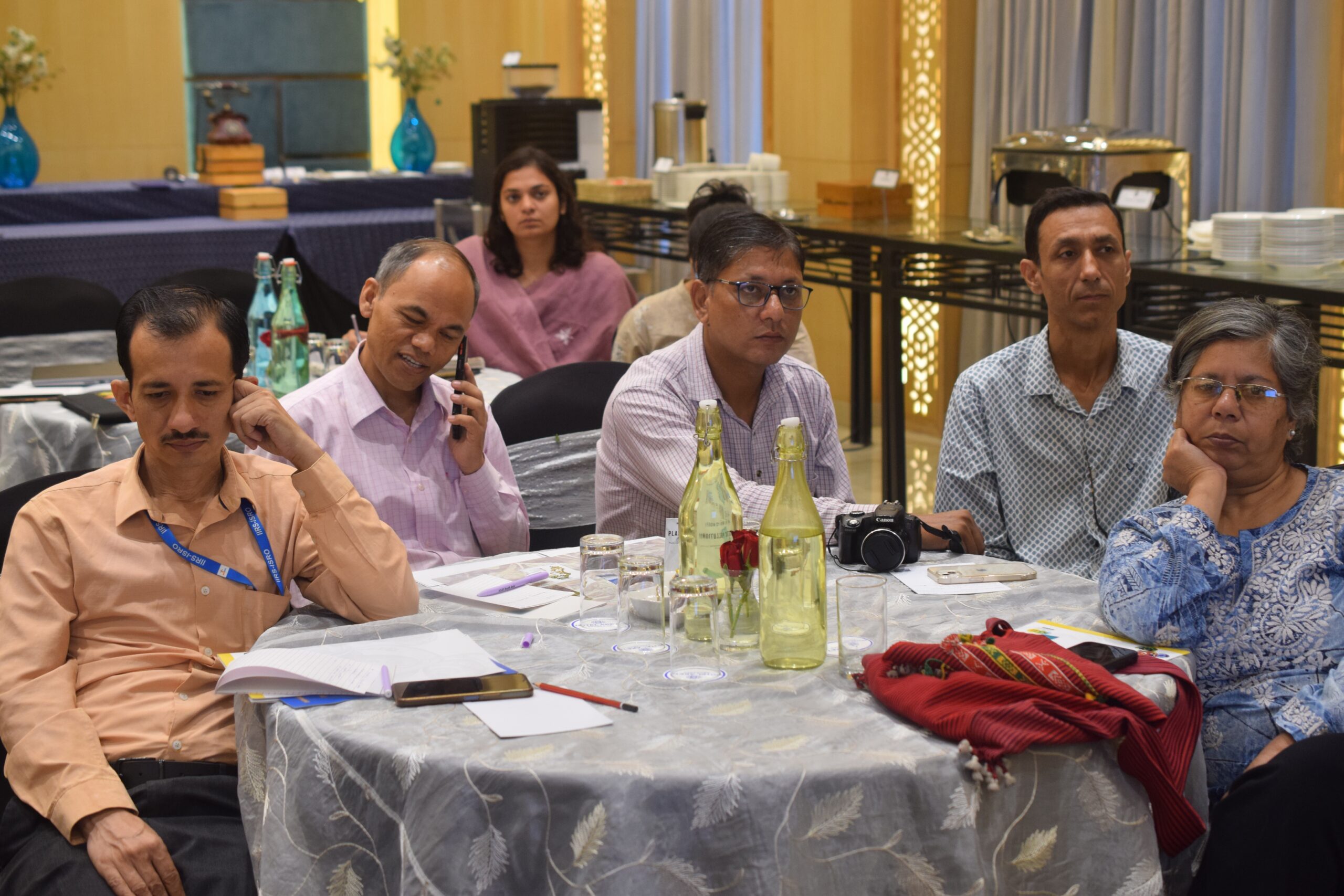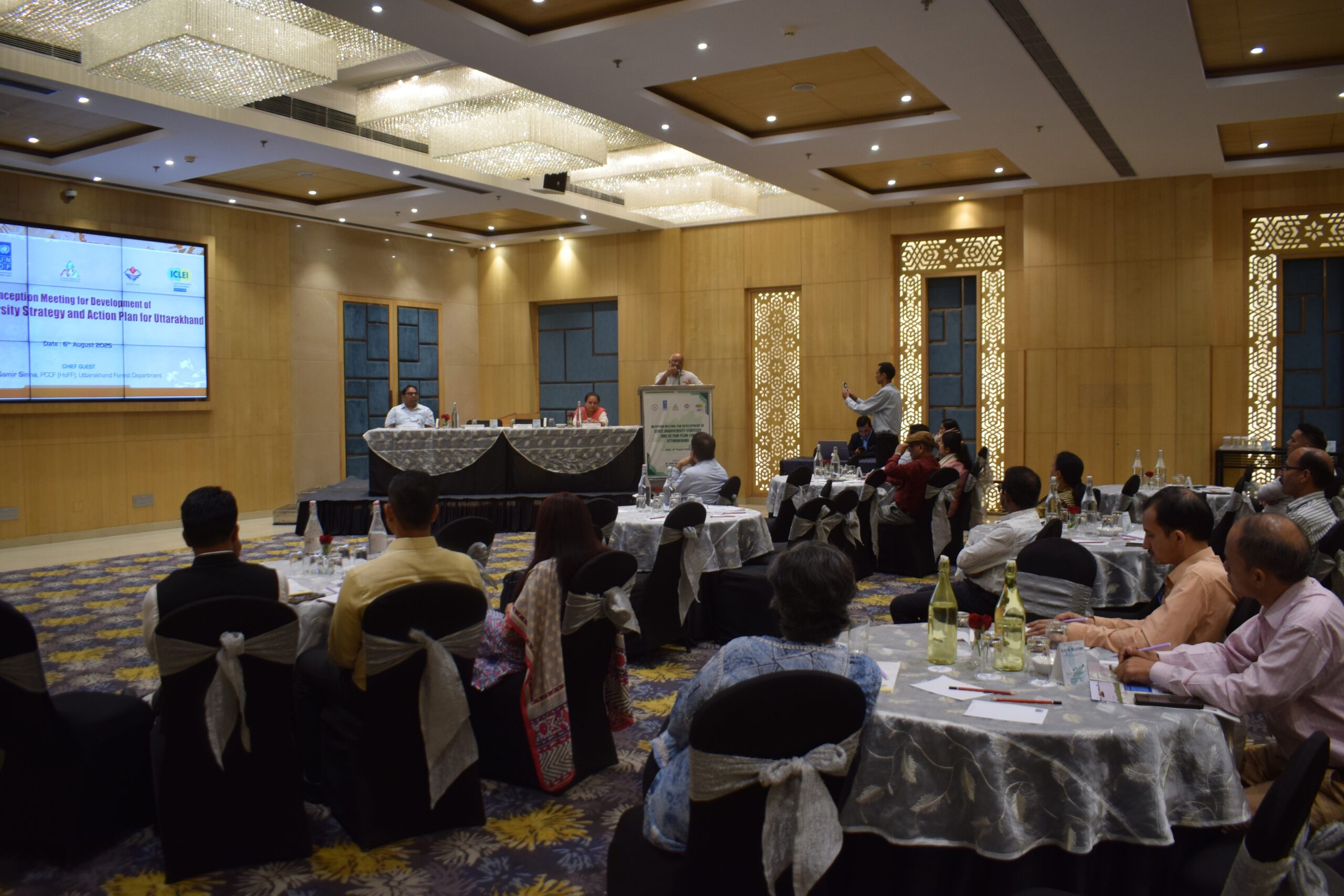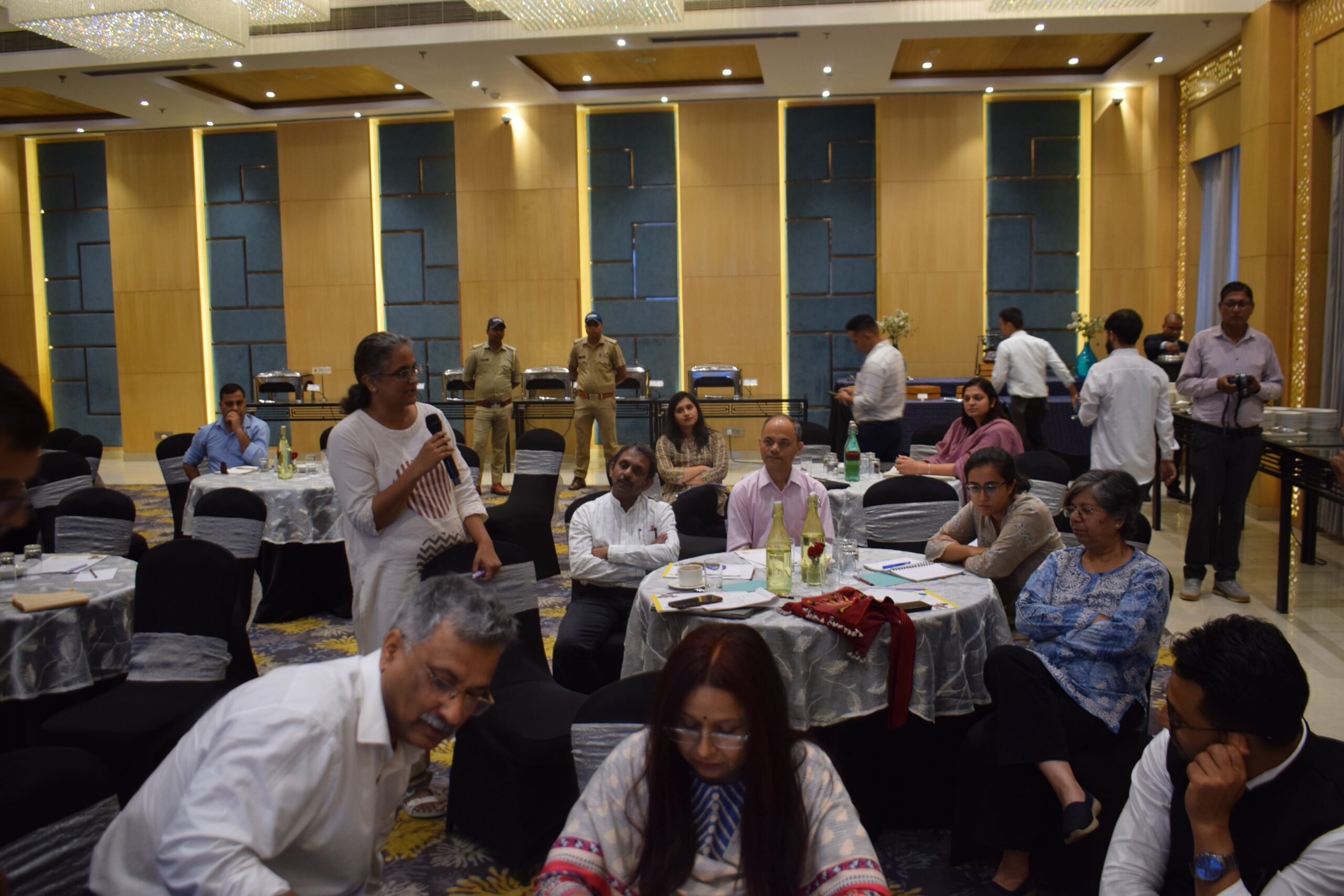Integrating Local Priorities into Global Goals: Work Begins for Uttarakhand’s Biodiversity Action Plan

ICLEI South Asia, with support from Uttarakhand Biodiversity Board and United Nations Development Programme India, has begun work on the State Biodiversity Strategy and Action Plan (SBSAP) for Uttarakhand. To facilitate this, an inception meeting was organised on 6 August 2025, in Dehradun. As a first, ICLEI South Asia is supporting a state in developing its SBSAP.
An SBSAP is a state-level document that complements a country’s National Biodiversity Strategy and Action Plan (NBSAP) and outlines local priorities for biodiversity conservation. The Conference of the Parties, through its guidance on NBSAPs, emphasises the crucial role of local action in implementing national biodiversity plans. It aligns with the Convention on Biological Diversity’s guidance for countries to integrate biodiversity considerations into state and local planning processes.
The workshop brought together over 40 stakeholders from government departments, academia, and civil society. Officials from the forest, agriculture, horticulture, tourism, animal husbandry, fisheries, and panchayati raj departments joined experts from the Uttarakhand State Council for Science & Technology, World Wide Fund for Nature-India, Zoological Survey of India, Indian Institute of Remote Sensing, Graphic Era Hill University, Wildlife Institute of India, Titli Trust, Himalayan Action Research Centre, Himalayan Environmental Studies and Conservation Organization, DIT University, and Forest Research University. Their inputs enriched the discussion with critical insights on Uttarakhand’s biodiversity status and underscored the urgent need for coordinated action.
Welcoming participants, Dr S.P. Subudhi, Chairperson, Uttarakhand Biodiversity Board, emphasised the need for updating Uttarakhand’s SBSAP in line with India’s revised NBSAP. India adopted a ‘whole-of-government’ and ‘whole-of-society’ approach and outlined strategies to address environmental challenges through ecosystem restoration, species recovery programmes, and community-driven conservation efforts. Dr Subudhi urged stakeholders to support the development of a holistic biodiversity action plan for the state.
Providing the global context, Dr Monalisa Sen, Associate Director, ICLEI South Asia, outlined the Kunming-Montreal Global Biodiversity Framework, which underpins India’s revised biodiversity targets. Prepared through extensive consultations, India’s revised NBSAP sets 23 targets. It emphasises the adoption of a transformative, ecosystem-based, and a bottom-up approach for implementation, mainstreaming biodiversity, sectoral integration, and inter-agency cooperation.
The technical session of the consultation workshop engaged participants in identifying themes and sectors that needed urgent attention for biodiversity conservation and offered possible solutions. These discussions will guide the next phase of work, which will entail assessing the current status of biodiversity in the state and identifying gaps.
ICLEI South Asia will draft the SBSAP in consultation with stakeholders and open it for feedback. It will be discussed with subject matter experts before being presented to the State Biodiversity Board of Uttarakhand. The final document will serve as a roadmap for Uttarakhand to integrate biodiversity into development planning and contribute to India’s national and global conservation goals.
